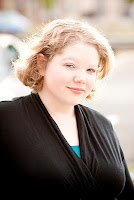I'm deep in the throes of drafting book two in my erotic romance series. The hero in this book is one of the secondary characters from my first book and, according to those who have read book one, someone that readers have really connected with/fallen for. He's been one of my favorite characters to write as well.
However, knowing this has added another layer of pressure to this process because I feel like if people are really going to be looking forward to hearing his story, I don't want to let them down. I want this story to not just be as good as the first, but better. Add in that I'm on a deadline with this one and all that anxiety can be suffocating--at least for my neurotic self.
Part of the problem is my process. I write linearly (is that a word?) and I edit as I go. So if I decide to change a motivation or a thread, I go back to the beginning and change it before I move forward. Part of this is because I'm a perfectionist by nature--a B was never acceptable to me in school. It's how I'm built. On top of that, I'm also unable to jump ahead of a tough scene to write later parts of the book because I need to know where I've been in order to know where I'm going.
I'm working on all these things. I'm trying to convince my pantser self to learn how to do a rough plot ahead of time. (More on that in another post.) But I'm also giving myself a new mantra: You have permission to suck.
The conference I went to this past weekend had a class given by author Anna DeStefano. She talked about how every time she draft, she's in a constant state of anxiety. That she prefers revising. It's the first time I've heard another writer voice how I always feel. Most of my writer friends are the ones (yes, I'm looking at you Julie Cross and Tiffany Reisz) who can bust through a first draft at a crazy fast pace. Their joy is in the drafting then they worry about editing or rewrites later. It's an opposite process from mine. I'm always happier once words are already on a page.
Then today I came across Kiersten White's post on drafting and realized I'm definitely not alone, there are lots of us out there. I'll use her quote because this is exactly how I feel when I'm drafting:
Every book feels impossible. Every single time, when I start a book and have that huge weight and balance of words pending, I think, how the CRAP do I do this? And every single time, when I am in the middle, I think, I am never going to finish. This will be the story I can't do. I'm done. How on earth did I ever manage to finish those other books? I literally can't remember. Maybe I didn't. Because I'm sure as heck not going to be able to finish this one.
And then, somehow, word by word, impossibly, the book gets written.
That pretty much sums it up for me. But what Anna DeStefano said gets her through that anxiety is to give herself permission to write junk during the first draft. She said she put a sign above her computer saying "You are allowed to write crap." So basically, giving herself permission to suck.
This is what I'm going to try to do. The first draft doesn't have to be great. It just has to have bones to work with. Once I have those bones I can hone this bad boy into the story I want it to be. Letting go of the perfectionism won't be easy for me to do--my internal editor tends to use a bullhorn to get my attention--but I'm going to give it my best shot. I'm at 52k words now. I want to get to 90k in the next 6 weeks. The only way I'm going to be able to do that is to give myself the permission to suck. I'll keep you posted.
So what's your style? Are you a fast drafter and hate revising? Are you like me? What is your mantra when you're writing the first draft?
























